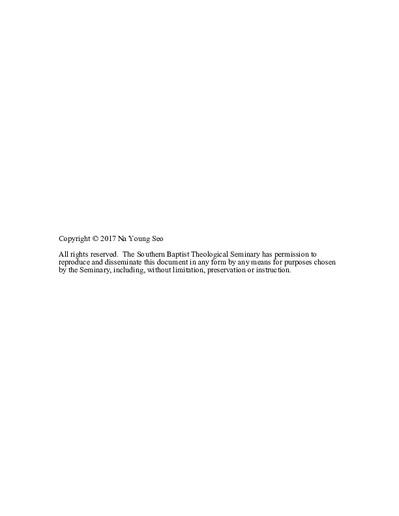Michael Tippett's Philosophy of Musical and Eschatological Time and Its Implications for Christian Theology
Subject
Tippett, Michael, 1905-1998Composers--England
Time--Philosophy
Time--Religious aspects--Christianity
Abstract
The tension between prevalent conflicting notions of theological time and God’s temporality calls for a new, unified approach to time rooted in biblical theology. This project proposes that a study of Tippett’s musical aesthetics and philosophy of time can be an important tool in the discussion of the theology of time. The analysis of Tippett’s oratorio, The Vision of Saint Augustine, supports a biblical theology of time and its relation to God in the eschaton. Tippet’s work is especially significant in light of modern theologians’ work in the theology of time, specifically William Craig, Karl Barth, Oscar Cullmann, and Jürgen Moltmann, who have made significant contributions to the theology of eschatological time and eternity.
This dissertation argues for the capability of modernist and postmodernist music through the use of various compositional approaches to musical time to convey a robust, biblical understanding of God’s temporality, i.e., the mysterious unity of time and eternity that is ultimately achieved in and through Jesus Christ. Music is able to generate highly effective ways of addressing some of the more intractable theological problems and dilemmas that modernity has left to Christianity. Music and its temporality have the potential to be understood as embodying an ideal concept of time-eternity. This can take place through music reflecting a dynamic vision of eternal life within non-transient eternity, which implies God’s temporality within eschatological hope. In The Vision of Saint Augustine, Tippett’s depiction of Christian mystical experience in the context of modernist musical techniques reconnects modernity to the Christian discourse by opening new hope in postmodernist music.

